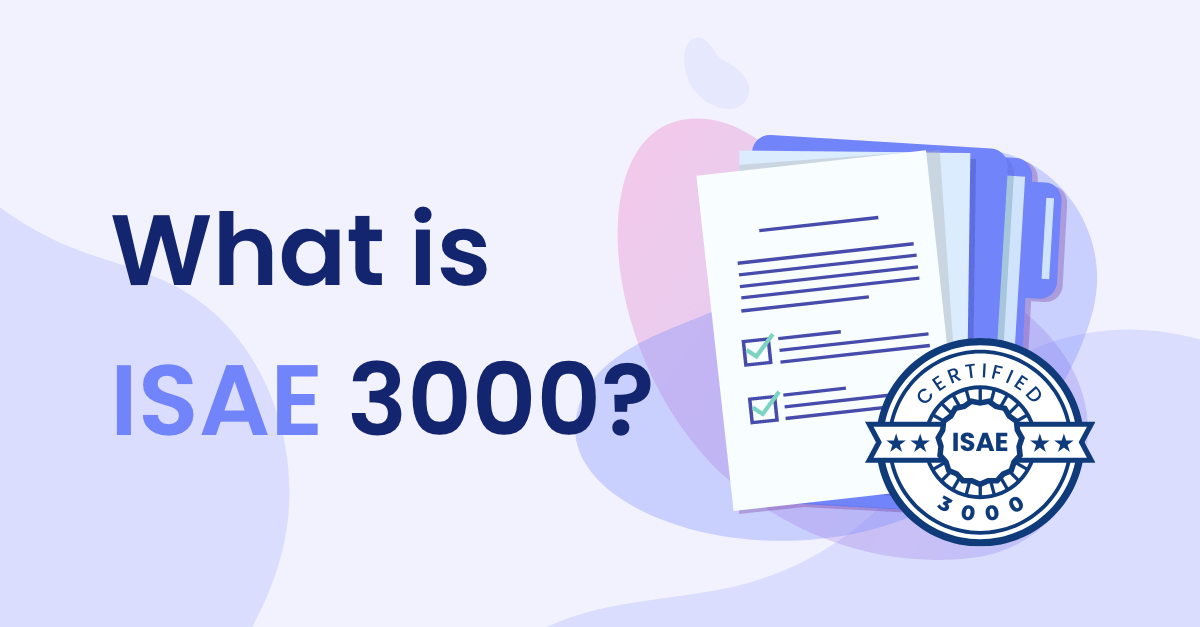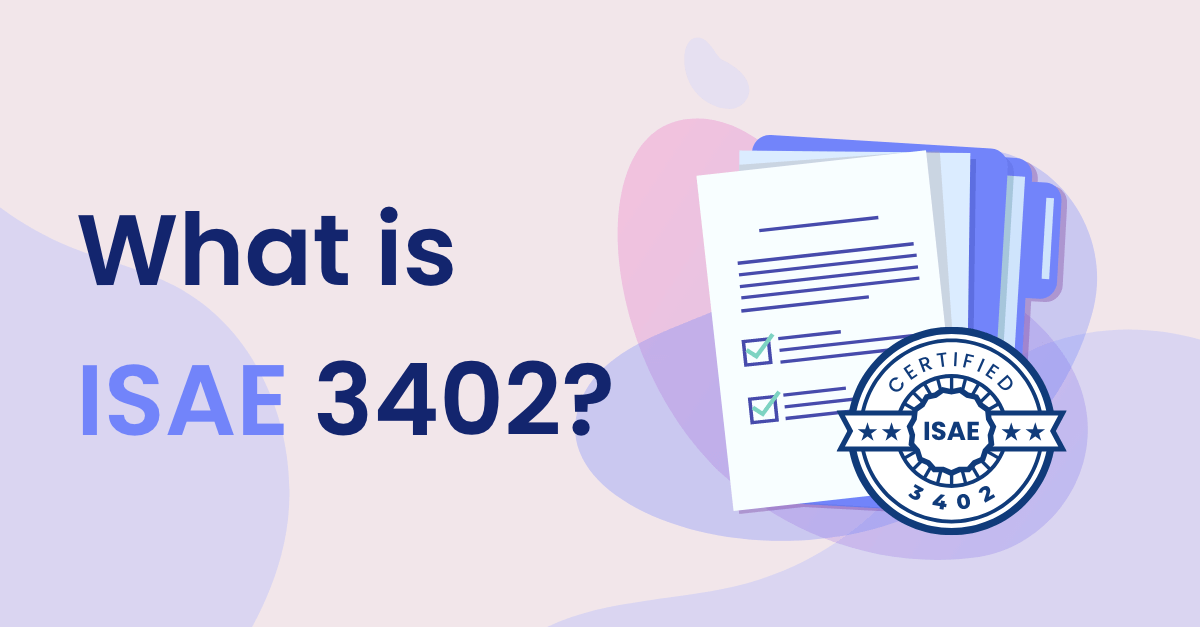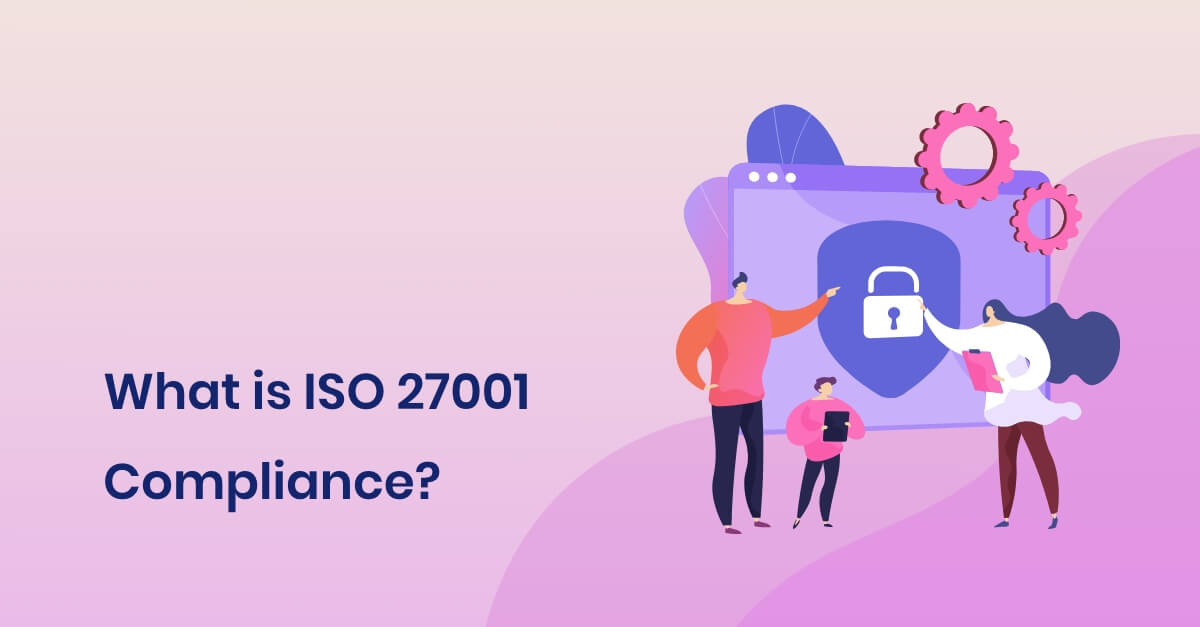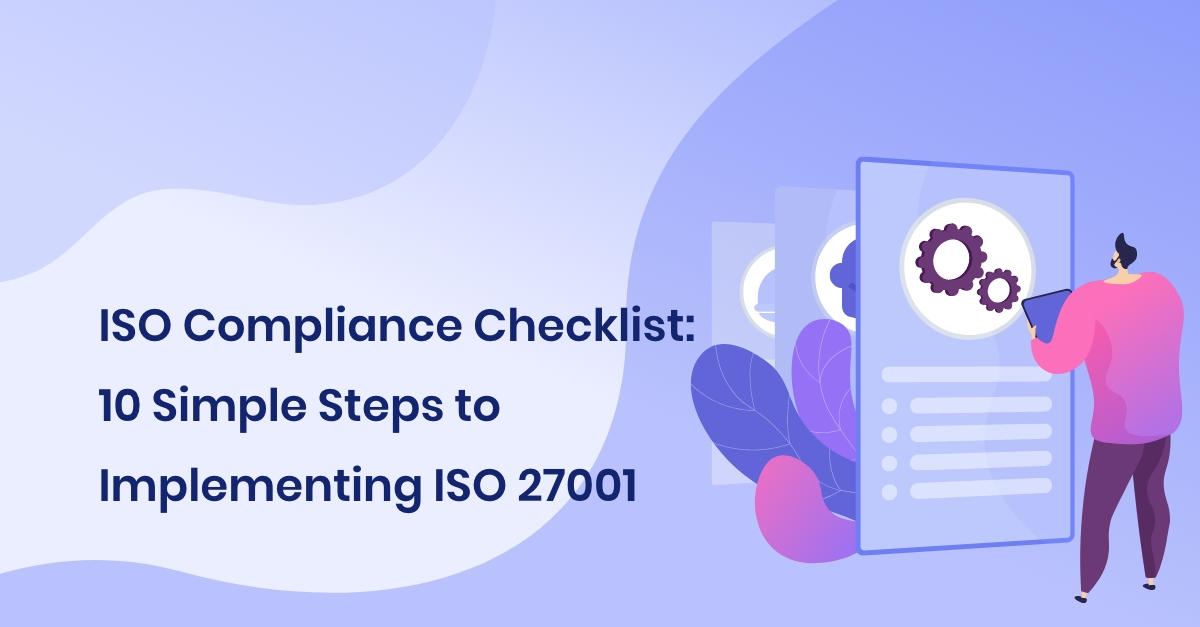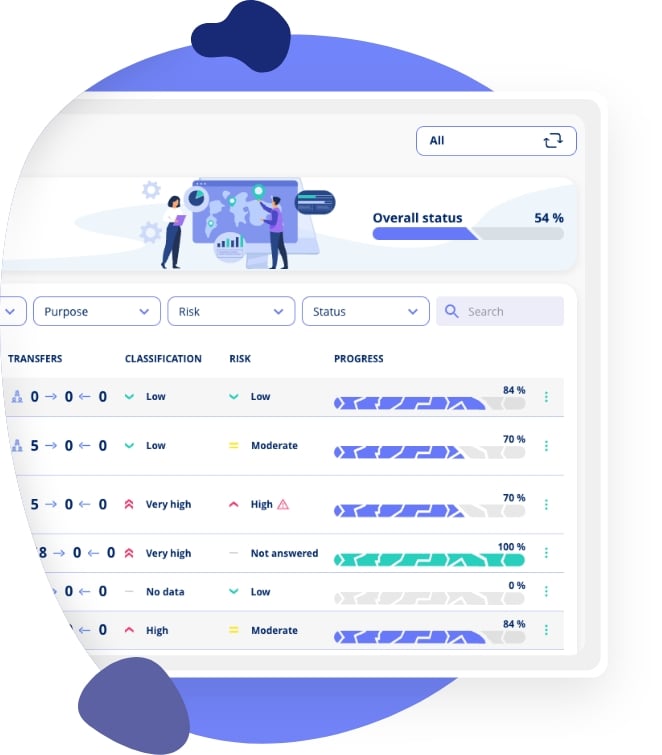Information Security in Healthcare | Top 3 Reasons Why it is Important
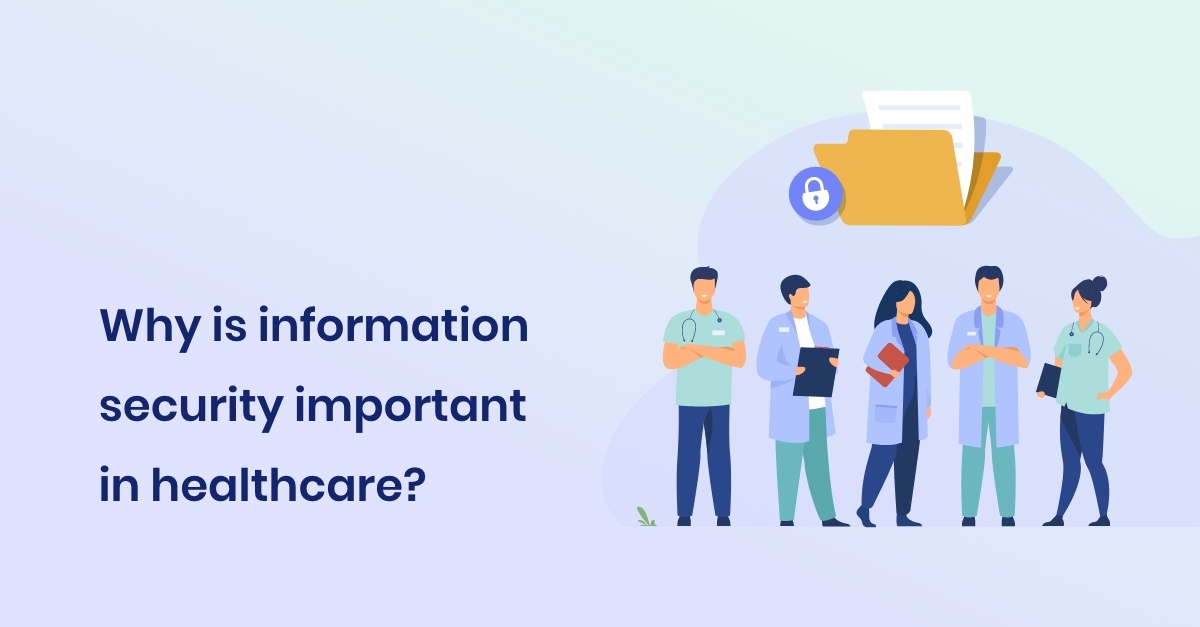
- Articles
- Information Security Management
- Information Security in Healthcare
Introduction
As the world increasingly embraces digital transformation, there is a lot less data that isn't stored digitally. Healthcare systems heavily rely on cyber solutions such as digital records, necessitating an increased focus on information security. This ensures patient privacy, maintains trust, complies with relevant legislation, and prevents costly and damaging data breaches.
Maintaining a high level of information security is crucial when handling data, particularly patient data in healthcare. It is essential that information security standards are stringent and resilience against breaches and cyber threats is prioritised.
Do You Really Need GDPR Compliance Software? Here’s How to Know
What is information security in healthcare?
Information security in the healthcare sector has a clear goal: to protect digital health information from unauthorised access, use, disclosure, alteration, or destruction. It's important to pay special attention to the ‘CIA triad,' which encompasses confidentiality, integrity, and availability.
✅ Confidentiality guarantees that health information is accessible solely to individuals who require it, meaning only authorised staff should have the ability to access and handle the data.
✅ Integrity covers the accuracy and completeness of information, ensuring that data is not manipulated or altered inappropriately.
✅ Availability means that data is accessible to authorised users when they need it – particularly crucial for patient care.
The healthcare sector faces numerous challenges and threats to information security due to the sensitive nature of data and the critical need for fast access to information, especially in emergencies.
Therefore, it is essential to implement various security measures such as encryption, access control, secure communication channels, regular security assessments, and employee awareness training.
It's evident that security measures should be tailored to the organisation's size and needs, with more advanced measures such as penetration testing and multi-factor authentication potentially benefiting larger organisations.
In summary, safeguarding information security in healthcare requires a comprehensive approach that addresses the unique vulnerabilities and requirements of the sector, ensuring the protection of sensitive health information at all times.
Why healthcare organisations are a bigger target to cyberattacks
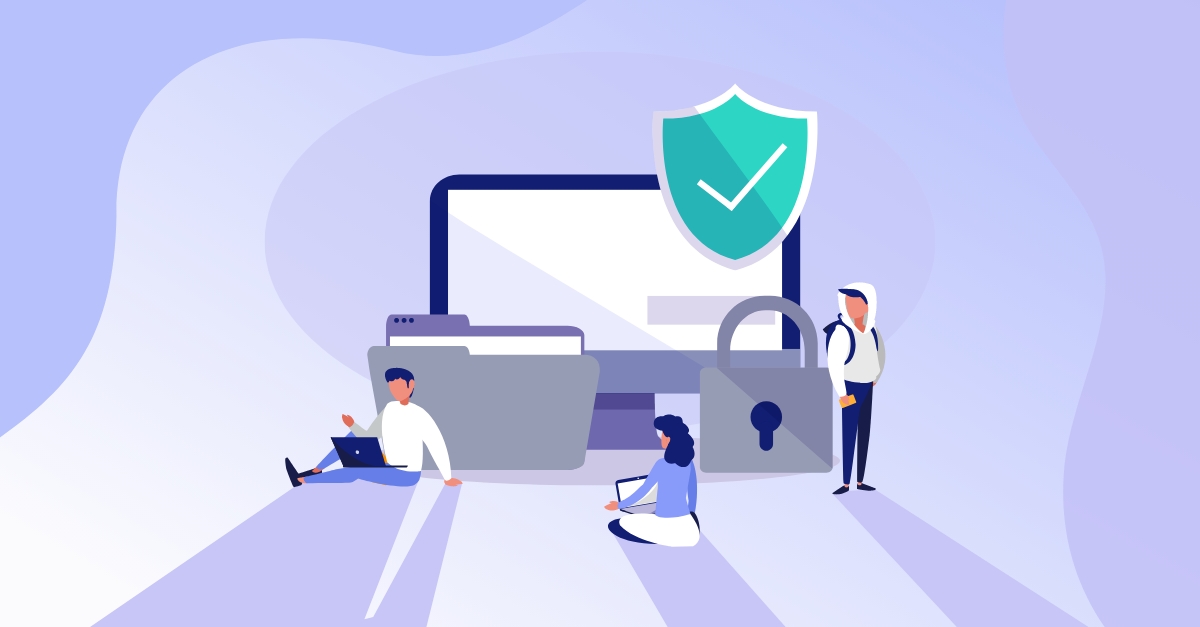
Cyber attacks typically target entities where the loss or manipulation of data would have critical implications. This holds particular significance for healthcare institutions that manage sensitive and private data, which is of great worth to cyber attackers; examples include medical records, insurance details, and personal identification information. This information is highly sought after by cybercriminals for activities such as extortion, identity theft, and insurance fraud, highlighting the importance of strong information security practices.
Healthcare institutions depend greatly on software, posing difficulties when legacy systems are utilised. Older software may not receive regular updates or support, leaving vulnerabilities that hackers can exploit, particularly through unpatched vulnerabilities. Additionally, integrating new security measures can be difficult if systems are outdated, hindering the adoption of modern security protocols and standards.
Another significant reason healthcare is a prime target for cyber attacks is the critical impact any disruption can have. For instance, losing access to medical records due to a cyber attack can lead to treatment delays and potentially endanger lives. Cybercriminals are keenly aware of these consequences, heightening the sector's attractiveness as a target.
The combination of valuable data, potential legacy software, limited cybersecurity resources, and critical consequences make the healthcare sector particularly vulnerable to cyber attacks. Therefore, meticulous attention to information security practices is crucial to mitigate these risks effectively.
How to prevent cyber attacks in healthcare?
As stated above, it is crucial to prevent cyberattacks in the healthcare sector, requiring both time and a comprehensive strategy. This entails implementing technical measures, policies, procedures, ongoing monitoring, and fostering deep awareness among employees.
Below is a list of possible measures to prevent cyberattacks and strengthen information security within the organisation:
-
Risk management: Conduct regular risk assessments to identify vulnerabilities in the system. With this information, apply measures to counter the recognised threats in accordance with the prevailing threat level.
-
Secure networks: Ensure all network-connected devices (e.g., computers, mobile devices, IoT) are secure. This can be achieved through measures such as firewalls, intrusion detection systems (IDS), and secure Wi-Fi networks to prevent unauthorised access. Additionally, network segmentation can limit the spread of malware.
-
Data encryption: Encrypt sensitive data both during transmission and at rest. This ensures data cannot be read even if accessed by an unauthorised user.
-
Access control: Implement strict access controls to ensure only authorised personnel can access sensitive information. Consider using multi-factor authentication (MFA) to enhance security. Regularly review and update the access list.
-
Create awareness: Promote secure handling of data among healthcare staff and others with data access through awareness courses and regular testing. Educate personnel on common attack methods such as phishing and how to respond to them. Foster a culture of cybersecurity awareness.
-
Regular software updates: Keep all software, including operating systems and applications, updated with the latest security patches. This helps the organisation become more resilient to cyberattacks and reduces vulnerabilities that hackers could exploit.
-
Incident response plan: Establish a rapid and effective response to cyberattacks and other incidents by developing and regularly updating an incident response plan. Test and potentially improve this plan as necessary.
-
Vendor management: Ensure that third-party vendors adhere to the same cybersecurity standards as your organisation. Conduct regular reviews of the vendor's security practices and assess them accordingly.
These are strategies for healthcare organisations to greatly lower the risk of cyberattacks, safeguard patient information, and keep their systems secure. Achieving long-term resilience against cyber threats requires dedication, time, and resources to continuously monitor new threats and adapt accordingly.
Want to simplify the process? Try our Compliance Software Tools!
What is the impact of cyber attacks on healthcare?
Lately, there has been a rising trend of cyberattacks targeting hospitals. These include ransomware attacks where hackers hold hospitals' data and systems hostage until a ransom is paid, allowing access to the data again. Such attacks can have significant implications for both hospital staff and patients. They can compromise sensitive patient data such as health records, which include identification details like social security numbers, full legal names, contact information, and addresses. This information can be exploited for e.g., identity theft and fraud.
Cyberattacks can have a significant impact on the operations of healthcare professionals such as doctors, nurses, and other providers. Ransomware incidents, for instance, can lock healthcare personnel out of critical systems, preventing access to patient records, organisational calendars, and medical equipment. Moreover, cyberattacks can disrupt medical services, delay treatments and procedures, leading to serious consequences for patients.
Additionally, cyberattacks can affect the broader healthcare system by damaging trust. Compromised patient data can undermine confidence in healthcare institutions' ability to securely handle information, potentially leading to hesitancy in sharing information critical for quality care.
Economically, recovering from a cyberattack can incur substantial costs, diverting funds from essential areas such as patient care and medical research.
In conclusion, cyberattacks on the healthcare sector have profound and multifaceted consequences. It highlights the vital importance of implementing strong cybersecurity protocols, consistently evaluating their success, and updating them when needed.
Why information security is crucial in healthcare: top 3 reasons

Development and improvement are constant factors in the healthcare sector; for this reason, information security plays a crucial role in protecting sensitive data, including patient data. A robust and dedicated information security policy and culture are therefore essential for securing data in the healthcare sector, beyond merely complying with GDPR.
The following section will outline three important reasons why information security is paramount in the healthcare sector.
Protection of patient data
Patient data is essential to the healthcare industry, serving as the cornerstone for managing everything from medication and medical history to treatment strategies within healthcare organisations. What is common among these is the sensitive nature of the information, highlighting the critical need for top-tier information security.
There are several reasons why protecting patient data is crucial. Fundamental to this is the right to privacy. Patients have a fundamental right to control their own information, and if they cannot trust that their data is handled properly, it can affect their trust. This may lead patients to hesitate in sharing sensitive information crucial for accurate diagnosis, treatment, and ongoing care.
Prevention of data breaches
The healthcare sector is vital, and so is the data stored within it. Therefore, experiencing one or more data breaches can have significant consequences. It can potentially compromise patient safety, as a hacker could manipulate patient records or medications, posing life-threatening risks. Ensuring data integrity is essential to mitigate such risks.
Data breaches may also cause interruptions in daily operations, affecting patient services, the scheduling of appointments, and various administrative functions.
Additionally, organisations can face substantial financial impacts from data breaches, including hefty fines, legal expenses, and damage to reputation. The costs associated with recovering from a breach are often far higher than investing in robust security measures upfront, making it beneficial for businesses to prioritise security at all times.
Consequently, it's essential to treat data breaches with the utmost importance and make certain that effective measures are in place to protect against cyber threats. Proactive measures are essential to reduce the effect of these security incidents and to discover them promptly, allowing for immediate responses using appropriate resources.
Reliance on modern technologies
The tech scene is always changing, leading to regular updates and improvements in healthcare technology. In the past, it was standard practice to keep physical paper documents secured in lockable filing cabinets or drawers, where security depended largely on the integrity of the locks and the trustworthiness of those who possessed the keys. Today, electronic health records (EHRs) are much more prevalent, offering ease, speed, and efficiency in information exchange among healthcare providers. Additionally, telemedicine platforms are increasingly used, allowing doctors to conduct online consultations with patients instead of traditional face-to-face meetings. While these advancements are more efficient in many ways, they also introduce new pathways for unauthorised access to data.
Therefore, the development of new technologies in healthcare requires high level information security measures and appropriate safeguards to address potential risks. This includes conducting risk assessments, implementing encryption, and maintaining continuous monitoring for potential vulnerabilities and threats, as outlined in an Information Security Management System (ISMS).
What is an Information Security Management Systems (ISMS)?
In summary, information security is crucial in the healthcare sector to protect patient data, prevent data breaches, maintain trust, prevent fraud, and safeguard important technologies integrated into modern healthcare practices. By prioritising the protection of patient data in the healthcare sector, organisations ensure both efficiency and robust security within their operations.
Why choose .legal to protect your healthcare organisation from cyberattacks?
There's a variety of methods to protect data from cyber threats, and these will differ depending on the organisation's threat profile, existing security measures, and the nature of data they handle. However, a crucial protective method is to implement an Information Security Management System (ISMS), which enhances cybersecurity and ensures compliance with relevant regulations. An ISMS identifies risks and establishes controls to mitigate them, creating a stronger and more secure infrastructure.
.legal has developed such an ISMS, which not only protects data and increases security against attacks and unauthorised access but also provides data mapping, prevents data breaches, and offers a systematic, user-friendly approach to information security - such as risk management and an annual wheel - by supporting processes, technology, and personnel throughout.
This holistic approach is especially important for the healthcare sector, where the protection of patient data is critical. Healthcare organisations handle large amounts of sensitive information, and an ISMS from .legal can help ensure that this data is treated confidentially and securely. Adopting an ISMS allows healthcare institutions to decrease the likelihood of information breaches and maintain adherence to key regulations like GDPR.
With a systematic approach to information security, healthcare organisations can build trust with patients while optimising their internal processes and strengthening their resilience to cyberattacks. Therefore, investing in an ISMS is a critical component for any healthcare organisation that wants to protect its data and maintain a high standard of information security.
Interested in streamlining your information security? Watch the video below to kickstart your journey without any upfront costs today!
Want to know more? See👇
Everything you need to know about GDPR
What is Information Security Risk Management?
GDPR Documentation Requirements: Checklist of Documents Required by EU GDPR


.jpg)


.jpeg)

.jpg)
.jpg)



.jpg)

-1.png)



.jpeg)








.jpg)

Info
.legal A/S
hello@dotlegal.com
+45 7027 0127
VAT-no: DK40888888
Support
support@dotlegal.com
+45 7027 0127
Need help?
Let me help you get started

+45 7027 0127 and I'll get you started
.legal is not a law firm and is therefore not under the supervision of the Bar Council.




